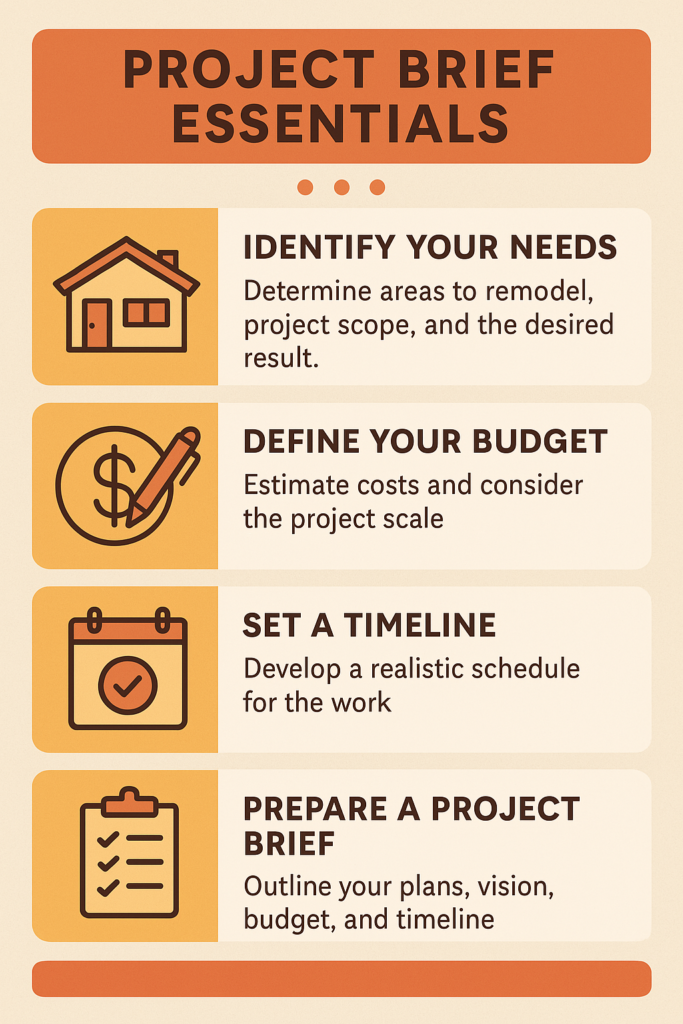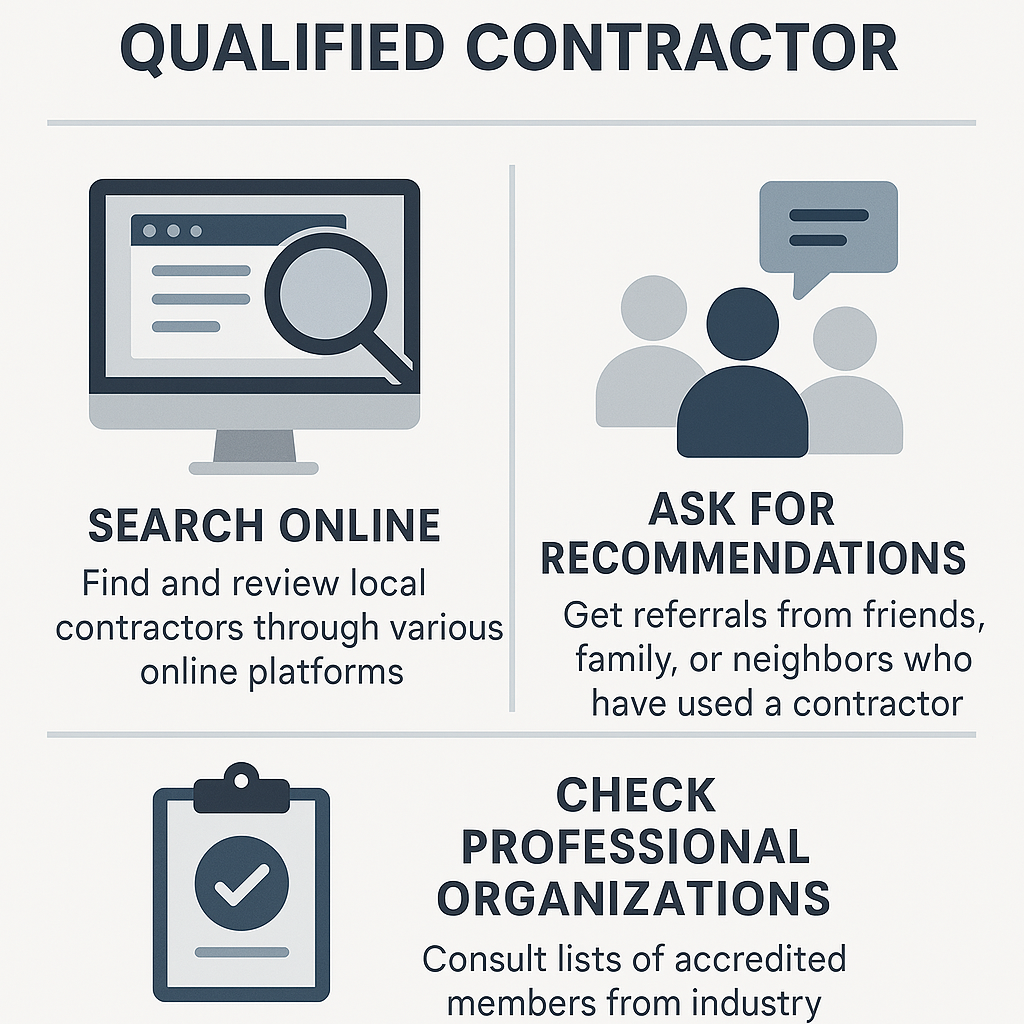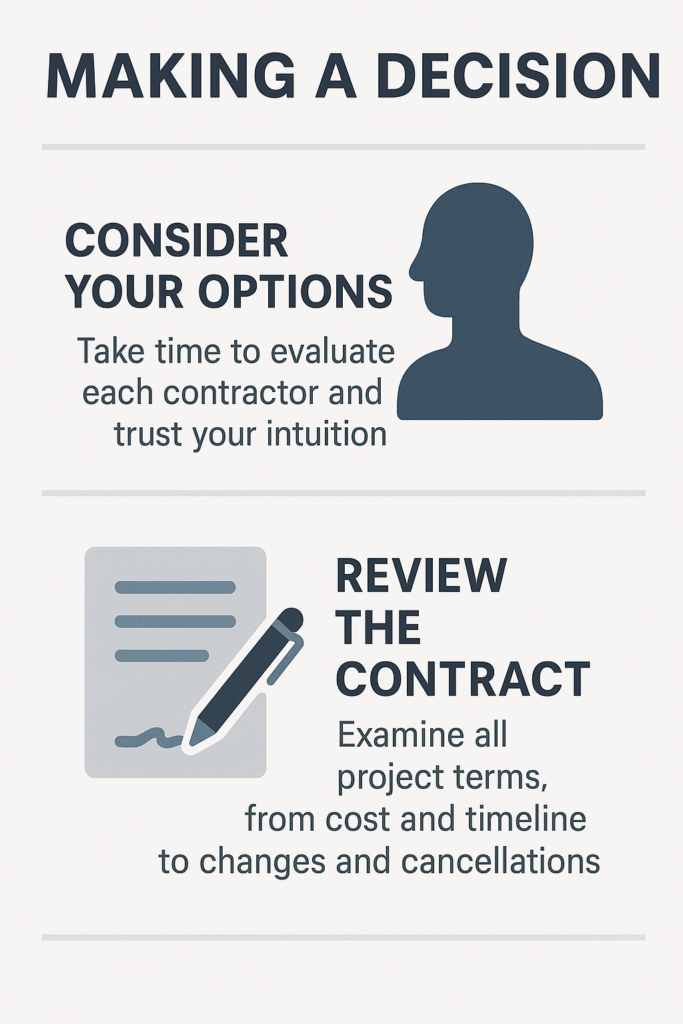Understanding Your Home Remodeling Needs

Before starting a remodeling project, you should have a solid understanding of your needs. Identifying the scope of your home renovation project will help determine the necessary budget and likely span of work for the qualified contractor. This should include knowing what areas of your house you wish to remodel, the extent of the remodel, and the desired result.
Defining your budget is another crucial element. Estimating home improvement costs beforehand can guide your decisions about the construction project’s scale, material costs, and potential contractor hiring. Having a reasonable timeline for the project contributes to this preparedness. A realistic schedule with allowance for potential delays or unforeseen challenges ensures smooth implementation of quality work.
Creating a clear construction project brief detailing your home remodeling plans, visions, budget, and timeline is invaluable. A well-prepared brief provides an excellent platform to attract the best contractor for your end goals.
How to Search for a Qualified Contractor

Once you’ve clarified your remodeling needs, you can begin searching for a licensed contractor. The easiest way to search is online, the internet provides an array of platforms where you can research and review local contractors.
Another trustworthy way to find contractors is through recommendations from friends, family, or neighbors—those who have had firsthand experience with a licensed contractor themselves.
Also, professional organizations such as the National Association of the Remodeling Industry provide lists of accredited contractors. These contractors adhere to a code of ethics, ensuring you hire a reputable contractor.
Key Factors to Consider in a Contractor
Several factors can help you shortlist multiple contractors to find the right one. Verification of credentials such as licenses, insurance, and bonds should be your primary consideration in finding a reliable contractor. These documents guarantee the contractor’s legality and competency, and the protection of your property.
To learn more about the contractor you’re researching, it’s a good idea to check the contractor’s past projects or their portfolio to give you an idea of the quality of work to expect. Client reviews serve as indicators of the contractor’s respectability, reliability, and the level of satisfaction they provide.
Equally important are the contractor’s communication skills and professionalism. Their approach towards your project, willingness to learn more about your vision, and capacity to handle your concerns reflect their attitude towards their work.
Getting Quotes
Ideally, you should aim to get at least three quotes from multiple contractors. This approach provides a reasonable project cost range for prices and services, helping you comprehend what is reasonable and what you get for your money.
Evaluating and comparing quotes involve more than just scrutinizing their prices. You need to understand what each quote includes and excludes and the quality of materials proposed.
A well-detailed quote signifies an organized, thorough, and reliable contractor. A breakdown of all the costs, timelines, responsibilities, and deliverables offers complete transparency and minimizes future disputes.
Making a Decision

Making a good contractor decision should take time and effort. Once you’ve gathered all the information, take time to consider each option. Trusting your intuition plays a part too, as you should feel comfortable and confident with the contractor you choose.
Signing a contract seals your decision, but be sure to review all clauses and the fine print. Critical items to check include project details, estimated project cost, timeline, and payment schedules. Also, ensure you understand the terms of changes and cancellations in case something comes up.
Managing Your Home Remodeling Project
Effective communication is crucial to project management. Regular discussions with your contractor to check progress, clarify doubts, or address concerns can prevent any potential misunderstandings or issues.
Having a project timeline and regularly checking on it helps you monitor progress, ensuring the project’s trajectory remains on the agreed path. Remember that changes or unexpected challenges may arise, and keep a level head to deal with them. Discussing such issues promptly and finding mutually satisfactory resolutions can keep your project on track.



